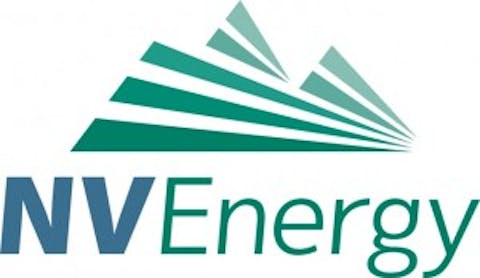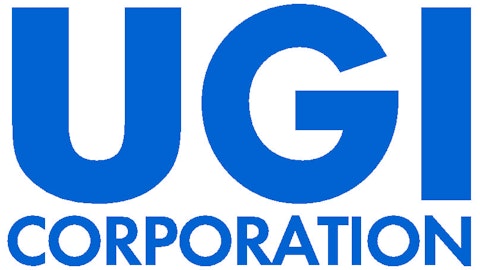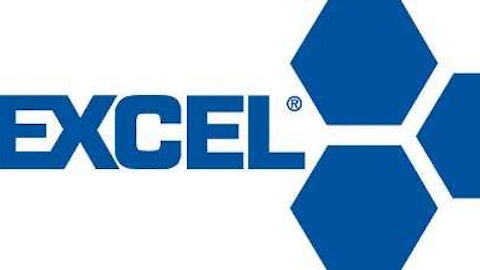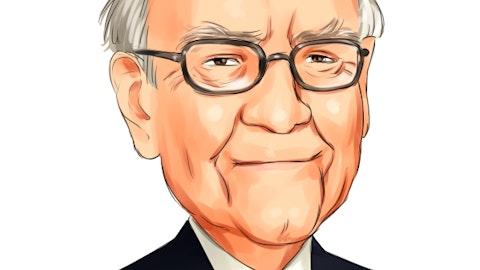Last week, Warren Buffett’s Berkshire Hathaway (NYSE:BRK.B) ended its buyer’s break with the acquisition of utility NV Energy, Inc. (NYSE:NVE). Amidst overvaluation fears, the Oracle of Omaha paid a 23% premium for his newest subsidiary. Here are three reasons why Buffett was probably enamored with NV, as well as three companies with similar offerings.

Buffett enjoys upside in his acquisitions just as much as the next investor, but he avoids pubescent growth stocks like Tesla Motors Inc (NASDAQ:TSLA) or Facebook Inc (NASDAQ:FB) like the plague. Utilities offer steady, regulated earnings with sustainable profits. Not only does this allow utilities to distribute dividends, but it offers risk-averse, long-term investors an easy in.
Ameren Corp (NYSE:AEE) is making leaps and bounds in the regulatory world. In the past two weeks, the Illinois legislature has approved new policies to allow the company to pass on costs to consumers for (a) smart grid modernization projects and (b) natural gas infrastructure expansion. Despite increased spending to the tune of an estimated $970 million, the utility expects its overall rate base to expand at a 7% compound annualized growth rate over the next four years.

Source: Ameren Q1 2013 Earnings Presentation
2. Build from the bottom
It’s no secret that top-line sales are falling for utilities. The Great Recession has dramatically dropped electricity use, and utilities can no longer rely on soaring top lines to cushion big spending. NV Energy, Inc. (NYSE:NVE) is no different. Over the past five years, sales have tumbled just more than 15% to $3 billion. But for the same period, operating income has soared 42% to $785 million and net income clocked in with a 54% jump to $322 million.
NVE Revenue Annual data by YCharts.
TECO Energy, Inc. (NYSE:TE) tells a similar tale. Its sales have seen a steady 11% decline to $3 billion, while operating income has headed 45% higher to $556.5 million. TECO Energy, Inc. (NYSE:TE) hasn’t pocketed quite as much profit as NV, though, with a 30% net income gain to $213 million.
TE Revenue Annual data by YCharts.
3. Location, location, location
The NV deal was sealed through Berkshire’s subsidiary MidAmerican Energy, and its CEO Greg Abel has had his eye on NV Energy, Inc. (NYSE:NVE) for some time. Beyond its “good management team” and “excellent regulated assets,” Abel made it known in an Omaha World-Herald interview that “[we] view Nevada as an excellent place for investment long-term.”
Nevada was one of the hardest-hit states from the financial crisis, and as recently as March 2012, its unemployment rate hovered 3.4 percentage points above the national average at 11.6%. But in the past year, unemployment has dropped to 9.7%, home prices are up around 25%, and new-home sales have skyrocketed 65%.

Source: NV Energy.
If there’s one area where the housing bubble burst bigger than Nevada, it’s Phoenix, Ariz. Pinnacle West Capital Corporation (NYSE:PNW) is the proud owner of Arizona Public Service, the state’s largest and longest-serving electric company. The company currently has 1.1 million customers on its books, and expects to add an additional 750,000 by 2030. This past quarter, Pinnacle West Capital Corporation (NYSE:PNW) West experienced seasonally adjusted 1.4% customer growth. In the past three years, excess Phoenix housing has fallen 50%, and industrial building vacancies are down to 10% from a recession-high of 15%. The Arizona recovery is understandably tentative, but things seem to be looking up for both Phoenix and Pinnacle West.
Buy like Buffett?
Copycat investing is no ticket to success, but Warren Buffett’s recent purchase puts things in perspective for smart investors. Look for these three qualities in your own investments, and you’ll be well on your way to pulling profits for your portfolio.
The article 3 Lessons From Buffet’s Newest Buy originally appeared on Fool.com.
Fool contributor Justin Loiseau owns shares of Berkshire Hathaway and Tesla Motors . You can follow him on Twitter @TMFJLo and on Motley Fool CAPS @TMFJLo. The Motley Fool recommends and owns shares of Berkshire Hathaway, Facebook, and Tesla Motors.
Copyright © 1995 – 2013 The Motley Fool, LLC. All rights reserved. The Motley Fool has a disclosure policy.






